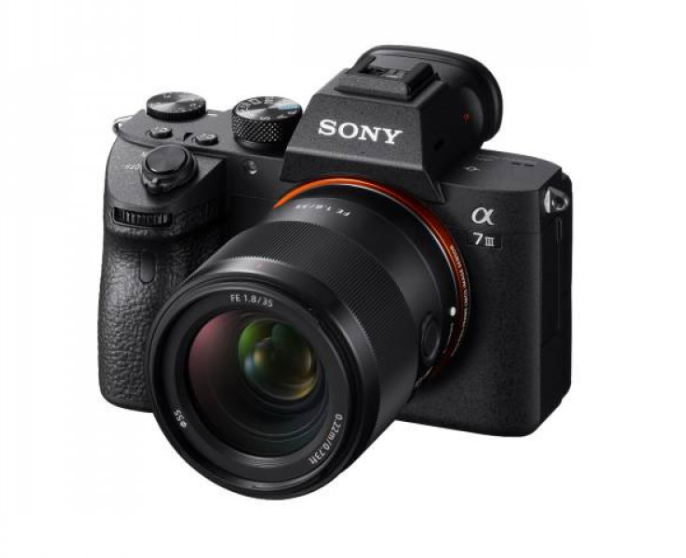Sally O'Neill shares how to become a pro food blogger
- Sally O'Neill
- Apr 28, 2021
- 3 min read
It appears our obsession with food is not slowing down. Between the covid-born baking ventures, blogs, and foodie influencers popping up in your feed you might find yourself thinking, should I pick up the whisk and give it a go? There’s no time like the present!
Food photography is a huge piece of the puzzle and a great way to kick start your journey by refining your skills whilst behind the lens. Here’s how to choose the best camera for you and turn your feed aesthetics up a notch.
If you’re photos aren’t of high quality, here’s where to invest your beginner bucks:
A small package with an amazing set up. The Nikon D3500 is perfect for on-the-go foodies as it weighs roughly the same as three bananas! if you’re out at lunch and found an insta-worthy meal - no problem - it’s super easy to carry your D3500 with you! With a 24 megapixel APS-C sensor packed inside you can be sure your beautiful brunch will be snapped crisply.
This is a fabulous investment if you’re looking for a compact and easy-to-use camera. Food photography is all about capturing the mouth-watering details - think garnishes, melted cheese and dripping sauces (the stuff that makes you salivate through the screen).
Luckily, the Sony A6000 has a flexible ‘spot focus mode’, which allows you to zoom in on the frame and select one element or feature that you would like to focus on.
With burst mode and bulb mode too, you can play with how you want to present the final dish.
As an added bonus, Sony are leading the way in video quality too, in case you want to shoot some recipes in the making!
For those who understand the fundamentals of photography and are looking for a professional set-up, try:
A long-time favourite of food bloggers and professionals, the Mark IV is in fact one of the most-used cameras in the digital age. It offers a 61-point AF system (which means you can focus on very specific spots on your image), and up to 32000 IS0 (which means you can shoot in low light).
It is also the first Canon full-frame camera that can focus in Live View while capturing the photos. The camera’s digital noise is hardly visible when you’re shooting on dark days (perfect for winter!). These factors combined, create a camera that excels in a variety of lighting
situations when less than ideal environments crop up. This is the camera I upgraded to shoot
my first cookbook 5 years ago. It’s since seen another 4 books and hundreds of client advertorial campaigns. It still shoots just as well as it did on the first day. A fine investment.
The Sony A7 III combines the best features of its sister cameras A7 R, A7 S, and A7 9, to offer
standout systems in digital and motion capture. This camera can shoot 4K and up to 120fps in
full HD, perfectly complimenting the range of motion often required to shoot food-based video.
However, the long-standing question remains, as to why Sony doesn’t put proper flip out screens on their cameras which is much-needed then shooting video.
However, I know many food photographers who love this camera body and if the screen doesn't deter you, it’s a cheaper option to the Canon.
Consider this Nikon’s equivalent to the Canon 5D Mark IV with the same wifi compatibility,
though a bigger 45.7 megapixel sensor, and an extended battery life which is great if you’re
working on huge or lengthy shoots.
With advanced time lapse options as well, this is a great one for when shooting alone and wanting to capture the cooking process from start to finish.
Once you’ve committed to either Nikon, Sony or Canon, you'll probably stay with the brand for life. The accompanying lenses don’t come cheap, and have to be compatible to the body, so bear that in mind when making your selection!

Now you’ve got the gear and somewhat of an idea, it’s time to talk nitty gritty of styling. Take your time curating a collection of crockery and cutlery that suits your mood and will create some consistency throughout the feed.
Next you want to play with styling and composition, bringing in new textures and layers…for example linen tablecloths, a scattering of rock salt, a drizzle of honey (this field is messy, trust me).
Last but certainly not least, you want quality produce so you are serving up foods you actually enjoy eating. If you’re a clean and green plant-based lover like me, Soulara is a fantastic one for their range of products: bliss balls, butter cups, kombuchas, juices, and fresh-made meals that all tie perfectly together and look super premo. Hot tip: I often turn to their feed for a bit of foodie inspo when I need as well!
Consider this your sign to start blogging today ;)
Sally O’Neil, Soulara Ambassador, Food Stylist, Content Creator, and Founder of The Fit Foodie Blog.













Comments